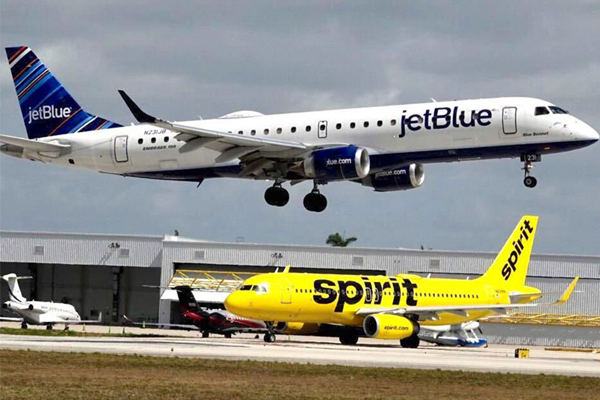NEW YORK, N.Y.—The City Council overwhelmingly passed a bill Nov. 23 to require restaurants and shops in future city-aided developments to sign “labor-peace agreements” with unions seeking to represent their workers.
Sponsored by Speaker Corey Johnson, the measure ordains that employers agree not to interfere with union-organizing efforts, while the union must agree to not go on strike or otherwise stop work. It would cover retail stores, food establishments, and distribution centers that have at least 10 employees and are located in developments that received at least $500,000 in city aid, such as cheap land, low-interest loans, or tax abatements.
It passed 47-1, with Steven Matteo (R-Staten Island) the only dissenter. It expands and codifies into law a 2016 executive order by Mayor Bill de Blasio. The city enacted a similar law in 2021 covering its human-service contractors.
“When the city subsidizes a project, workers in turn want an atmosphere where their rights are respected,” Retail, Wholesale and Department Store Union President Stuart Appelbaum, who advocated for the bill, said in a statement. “When workers’ rights are respected, we can more effectively challenge income inequality, establish a living wage, and have a more effective recovery from COVID-19.”
“When city dollars subsidize the development of retail stores and food establishments, New Yorkers who work there should be free to join a union and never face union-busting. Labor peace and this law will help ensure that happens,” said Speaker Johnson.
The bill would apply to businesses on any property that receives at least $500,000 either directly from the city or from a city economic-development agency. If the aid is in the form of loans, its value will be determined by how far below market rate their cost is.
Employers would have 90 days to certify that they had either signed a labor-peace agreement with a union or that no union had sought to represent their workers. Small businesses and nonprofits would be exempt, as would businesses in the Hunts Point Market and the Brooklyn Navy Yard; in developments that are at least 75% price-regulated housing; or on manufacturing sites.
The agreements would last for 10 years or the term of the city’s agreement to aid the project, whichever is longer.
“The COVID-19 pandemic and subsequent economic downturn has reinforced the importance of job and income security for workers,” said a report issued by the Council’s Committee on Civil Service and Labor Nov. 22, on why the bill was needed. “While unions and collective bargaining play essential roles in ensuring these rights for workers, union membership has been in steady decline since the 1970s, and has been exacerbated by the pandemic. 2020 marked the third year in a row that union membership fell in New York City to a rate of 22%. Recent reports of union-busting and interfering with workers’ attempts to organize present further obstacles to labor rights in the coming years.”
The concept of requiring labor-peace agreements for businesses in city-funded projects dates back about four decades. In 1980, the committee report said, the San Francisco Redevelopment Agency required the Marriott Corporation to sign one in order to develop property on city-owned land. The company agreed both to stay neutral and to recognize a union by card check, if a majority of workers signed union cards.
San Francisco later enacted similar laws covering city-aided hotels and restaurants and contractors at airports. Washington, Pittsburgh, Baltimore, Los Angeles, Las Vegas, Minneapolis, and Seattle also have labor-peace ordinances.
Some are voluntary. When Amazon was considering locating its second national headquarters in Long Island City, it agreed that it would be built by union labor and maintained by union building-services workers. The company, however, refused to be neutral about its own employees, such as those at its Staten Island warehouse. It pulled out of the proposed deal in February 2019, citing local opposition, a few days after the Councilmember representing the neighborhood denounced Amazon for its representatives telling a Council hearing “that they would actually fight to crush any effort of their employees to unionize.”
New York and Maryland are the only states with labor-peace laws. New York’s apply to hotels and convention centers with more than 15 employees that receive enough aid for a state agency to assert a proprietary interest, and to marijuana businesses, both medical and adult-use recreational.



